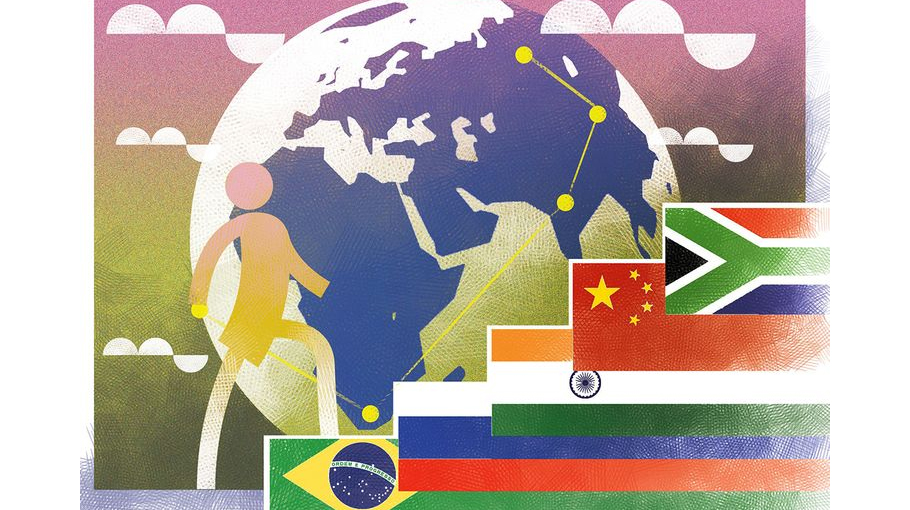Can BRICS defeat predatory capitalism?
The centre of gravity of global economic fortunes is changing, prompting political shift

You simply cannot overstate the growing economic clout of the BRICS group. Equally important to economic power is the political influence that members of BRICS will most likely command in the coming years.
A new report by Bloomberg, published on Nov. 3, provides additional proof of why our perception of BRICS is neither wishful thinking nor a hype.
For example, Bloomberg says that trade between the five founding members — Brazil, Russia, India, China and South Africa — has climbed by 56 per cent between the years 2017 and 2022. This includes “$422 billion worth of turnover last year”.
Yet, BRICS is growing even more powerful as new countries, namely Argentina, Egypt, Ethiopia, Iran, Saudi Arabia and the UAE will join this powerful Global South economic club in January.
Changing political dynamics
2023 has already been a good year for BRICS, namely due to US sanctions on Russia, which forced Moscow to turn south in search for new markets, especially for its natural gas and petroleum products. If the growth rate continues, the expanded BRICS will, on its own, contribute to nearly half of the global economic output in 2040.
To put this in more relatable terms, in the coming years, BRICS — according to the recent data — will double the economic share of the G7 group, whose economic power, until recently, defined global trends, both in terms of growth and decline.
This unmistakably means that the centre of gravity of global economic fortunes has fundamentally changed, which will ultimately lead to a shift in global political dynamics as well.
Smaller economies that will soon be joining the club want to be part of a powerful economic engine.
Traditionally, Western economic institutions governed the world based on two sets of rules: one, which applies to Western states, and is based on mutual benefits and cooperation; two, which applies to the Global South and is based on control, hegemony and sometimes coercion.
BRICS has figured this out. The group understands that no Western institution is ready to engage countries in the Global South based on a perfect economic balance and equality. Instead of pleading, they decided to build their own alternative economic structure, thus fully liberating their nations from the conditions of the International Monetary Fund, the World Bank and all the rest.
Developing new alternatives
“New higher relations of production never appear before the material conditions of their existence have matured in the womb of the old society,” Karl Marx wrote in ‘Contribution to the Critique of Political Economy’.
BRICS members are aware that “higher relations of production” can only change if the relationship between the West and the rest of the world also changes.
And, while BRICS remains committed to the nature of modern globalisation, it is currently experimenting with a softer version of capitalism that does not rely on the destructive theories of Milton Friedman and his Chicago School of Economics’ shock doctrines.
“Only a crisis — actual or perceived — produces real change,” Friedman wrote in the preface to the 1982 edition of ‘Capitalism and Freedom’.
Friedman, whose theories are often affiliated with the destructive policies that led to the economic collapse and social and political disorders in many South American countries, believed that, for the West to maintain its economic prowess, the rest of the world has to be controlled.
“Our basic function,” he wrote, is to “develop alternatives to existing policies,” so that, with time, “the politically impossible becomes the politically inevitable.”
Though often that form of predatory capitalism is discussed in Western academic circles in the past tense, it remains the core of Western economic — in fact political — approach to the rest of the Global South.
OPN BRICS
Fundamental change in relationship
For this relationship to change, BRICS would have to serve as the first line of defence against the West’s superior approach towards the Global South.
The words of European Union Foreign Policy chief Josep Borrell, that “Europe is a garden” and “the rest of the world is a jungle” were not uttered in October 2022 in an economic context per se, but the sentiment remains true, regardless of the context.
But Borrell is wrong, the same way that Friedman was also wrong. The so-called “jungle” is not interested in Europe’s “garden”. Indeed, the Global South has a garden of its own, lush with endless resources, human power and unimaginable potential.
Though the potential of the Global South cannot be reduced to BRICS, this powerful new platform represents much hope that a fundamental change in the relationship between the West and the rest of the world is finally possible.
Dr Ramzy Baroud is a journalist, author and editor.
Source: Gulf News


